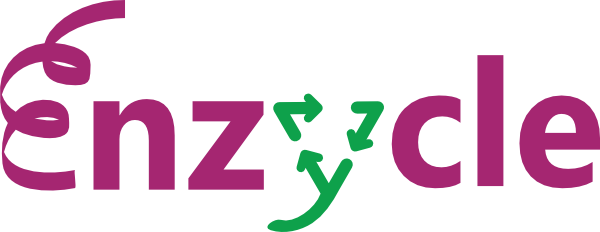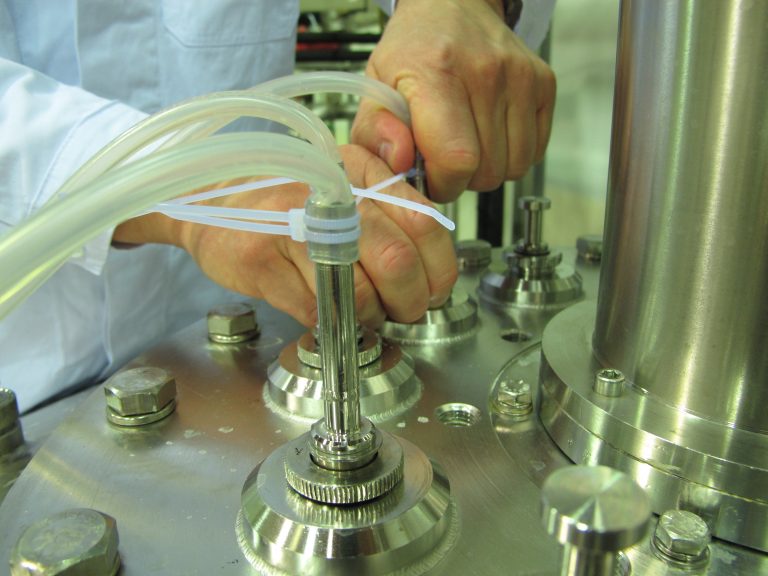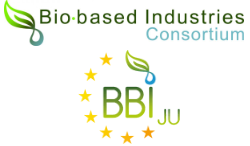Author: Gerald Striedner, University of Natural Resources and Life Sciences (BOKU) Vienna
The central idea of the H2020 project ENZYCLE is the degradation of non-recycled plastic fractions by enzymatic treatment. PET packaging, multilayer packaging (PET/PE and PET/PP) as well as microplastics are the main target materials that need to be treated for a better recycling. At first, the most appropriate enzyme candidates need to be identified.
As soon as the suitability of these candidates has been determined, it is crucial to develop an efficient production process for these enzymes. The technique to produce enzymes in medium and even large scale is an emergent and extended practice. However, currently, there are no commercially available enzymes capable of degrading PET and PE/PP. Subsequently, also no production process is available yet.
Challenge 1: Find the right system for sufficient yield
There are a couple of enzymes that could be produced in large scale so far: proteases, isomerases, oxidases or hydrolases are just some examples. But there is no universal recipe for enzyme production and each individual enzyme requires its own process conditions. Thus, process engineers must first decide on a specific production organism and then identify the cultivation conditions optimal for production and also optimize the subsequent steps of enzyme purification. Regarding the expected large scales and the cost structure for this type of enzyme application, extracellular expression that allows for simpler and also cheaper purification procedures will preferably be followed. Options for final enzyme formulation are also diverse and must be coordinated in an integrated approach with the recycling process as well as the polymer supply process.
Challenge 2: Brilliant production in lab scale does not guarantee success in pilot or large scale
The ENZYCLE project team will develop production processes for selected enzymes with Escherichia coli (at BOKU Vienna) and Pichia pastoris (at Wageningen), and design the downstream process (at ASA). The efficient transfer of a successfully implemented lab scale process to larger scales is still challenging as negative effects on process efficiency are unavoidable when scaling up, and one must be able to deal with them. A proven concept to be successful here is a gradual increase in scale through the introduction of a pilot scale. In context with very large scales, continuous enzyme production processes can be a good alternative.
Challenge 3: Make a production process continuous
In context with very large scales, continuous enzyme production processes allow for a significant increase in space-time yields compared to conventional batch-wise production. Thus the scale of production facilities can be significantly smaller with the same enzyme yield and reduced labor. This then also effects the cost of goods, investment and personnel costs and comes along with a lower carbon footprint. However, a continuous process does not fit for each protein or enzyme. The major hurdle in this context is the limited genetic stability of expression systems under stressful production conditions. There is a high risk that non-producing subpopulations will emerge and displace the producer cells in a continuous process setting. To circumvent this problem a 2-stage cultivation with a new E. coli system that allows for decoupling of growth and production will be established.
By the implementation of these tasks within ENZYCLE, the team will provide the enzymes used in other work packages and significantly contribute to the development and realization of efficient and economically viable recycling processes for degradation of PET and polyolefines.




